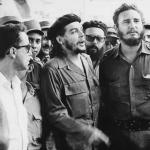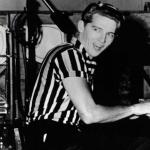A talented person is talented in everything
Having received the task to interview an interesting person, I immediately thought of my grandfather, because I consider him a bright, interesting and outstanding personality. My grandfather - a participant in the Second World War, flew an IL-2 attack aircraft, has many military awards, an honorary member of the VOI. After the war, he was educated as a teacher of the Russian language and literature. He devoted fifty years to his favorite work, is an excellent student of public education. Since childhood, he began to write poetry, this passion remained with him for life, he became the laureate of numerous poetry competitions, the laureate of the All-Russian Festival of Disabled Creativity (author's song). Grandfather is the author of two collections of poems. I had a lot of questions for him.
Why did you, grandfather, choose the profession of a teacher? Why is she dear to you?
That's what, granddaughter, I will answer your questions, and mine will help me
poetry. So it is possible? 
Of course!
So…
The teacher is an idol for children's souls,
Crystal clear glass,
Through him children the whole world
Must be taken ideal:
Good prevails over evil
Dignity top - mind inquisitiveness.
That a man is glorious is labor.
And justice prevails. 
The choice of the profession of a teacher of Russian language and literature is not accidental. Love to
Have you ever doubted the right choice of profession?
I was convinced of the correctness of the choice when I had an internship in literature, taught a lesson in the 5th grade, studied Turgenev's Mu-mu. All the children were crying. I realized that I made the right choice.
Grandpa, did you enjoy going to work?
Yes. The work of a teacher is difficult and responsible. I enjoyed interacting with students. I felt that they love me, and this is the main thing.
Maybe that's why I worked so long.
Who devoted his life to a great cause -
Motherland to raise a generation
He knows the secret of renewal of strength,
And where is he - the source of inspiration.
Smiles of children, for a moment,
They look like red poppies.
I come to them as in spring, as in a flower garden
And I'm getting younger.
And in order to teach well, you need to know a lot yourself. In any case, more than the school curriculum covers.
Grandpa, what achievements did you have in your work?
I was given the title and awarded the badge "Excellent worker of public education." I conducted open lessons for city teachers.
And what do you consider the main thing in your profession? - For a teacher, it is important not only that students learn the school curriculum, but also how they grow up, their upbringing, their love for their homeland. It is very important. 
I know the horrors of war
Burning snow, fighting excitement.
We followed the call of the Country
In his first fight from the school desk.
How easy it is for me to understand now
I'm in a terrible battle - the winner,
To defend Russia
What role did the teacher play?
Keep the purity of the soul
There is no more important thing in the world,
Who will our babies be?
We are responsible to the Motherland!
Grandpa, where did you get your degree?
After serving in the army, I stayed in Grozny, where I served in recent years. He graduated from the Pedagogical Institute, received the specialty of a teacher of the Russian language and literature of grades 5-10.
What words would you like to say to novice teachers?
Bow your heads, people of the earth,
The wind is fair, inflate the sails.
A new teacher is on the way
To kindle young hearts.
Hello youth! Fire, hold on!
Do not tarnish, as in raw silver.
Stubbornly pour into children's souls
I thirst for knowledge and faith in goodness!
Grandfather, what do you say to teachers who have given school for many years?
I wish them one thing:
So that children, they are scientists,
Seeing them, they bowed at the waist.
Thank you, grandfather, for the interview.

Solovyov Nikita MBOU Astrakhan "Gymnasium No. 2"
Speaking on this subject, I would like to begin with a few statements I heard about talent. I read that talent is the ability to feel the truth. One article says that it is necessary to give way to talented people - the talented will teach both the poor and the stupid. The third statement is that a person is not the master of his talent, but only his conductor. I think that this is true, because talent knows more than the one to whom it is given. With these words that I heard in the program about Pushkin, I completely agree. On my own behalf, I want to add that there is no person who would understand everything in the world, there are gaps in the minds of everyone, and a talented person is no exception. Therefore, his own talent is often the best adviser and source of information for him. If he doesn't know something, let him ask his talent.
We know one talented person. An excellent physicist, he invented the automatic electrocardiograph. Once, under the influence of an influx of pessimism that gripped him, he said that no one needed talented people. This can be answered: if there were no talented people, a person would sit in a cave and would not get out of it. Without them there would be no science, no art, no literature.
One young woman who worked with me liked to act as a psychologist. And she succeeded in this: insightful and benevolent, she kept secrets with everyone, knowing how to gain confidence, and was on good terms with everyone. Being interested in all aspects of life, she, of course, communicated with talented people. She said that one of her friends writes poetry.
- It must be written this way, - my colleague was surprised, - her poems are as if she is walking on a knife blade, - And she added: - I can’t understand why talented people are abnormal.
In her question about the reason for the abnormality of talented people, along with sincere, naive surprise, dislike and disgust for these creatures, whose nature is incomprehensible to her, were slightly revealed. Saying these words, she seemed to shake herself, emphasizing the fundamental difference between them and herself. Here she is, for example, a completely different matter, she is normal.
Talent leaves an imprint on the one to whom it is given. He and his guide are inseparable from each other, they are a single whole. Therefore, talented people, as they say, with oddities. Tchaikovsky, for example, leaving his house, hung a note: "The owner is not at home." The music that arises in his head and the creative process itself completely absorbed the composer. As a result, he, approaching the house several times and seeing a note about the absence of the owner, left. Einstein, on the other hand, could go out wearing a towel instead of a scarf. Maybe he was original? Or defiantly behaved, showing his disdain for others? Of course not. It just seemed unimportant to him, he didn't think about it. Like Tchaikovsky, his head was occupied with something completely different.
So why are gifted people considered abnormal by so many? Because talent itself is no longer the norm, it does not fit into its rigid, generally accepted framework. And normal is what is clear, what is like everyone else. Pushkin in "Eugene Onegin" asked the reader the question, is this why people judge someone so unfavorably: "And that mediocrity alone is up to us and is not strange?"
To break through, a talented person, as a rule, requires a lot of effort. Therefore, along with talent, a person is often given inner strength and stamina by nature. The only question is whether this person is hardworking. He does not have to rely on the understanding and support of those around him. Here, again, we must remember that a talented person is incomprehensible to others. There is a saying: "People hate what they don't understand." Also, people are afraid of the unknown. In addition, society is trying to push out, like a foreign body, everything that is uncomfortable, that does not fit into it. The vast majority of people will not delve into, try to understand - it is easier for them to get rid of what seems uncomfortable. Exactly: it seems. A hardworking and persistent talented person can bring great benefits to others.
There are two attitudes towards talented people, depending on how successful they are. A beginner who has not yet declared himself a talent can be treated as a “stuffed animal” and an unnecessary, superfluous person; but a recognized talent - a celebrity who is looked into the eyes, flattered, and at the same time, with pleasure, the secrets of his personal life are washed away. A huge number of people who want to be photographed next to a celebrity, so that a reflection of her significance and fame also falls on them.
What distinguishes a talented person from others? Somewhere I read that a genius is first of all an ordinary person. This is true. Nothing human is alien to him. But a talented person is able to shed light on the laws of nature and human nature. A talented person is the same as everyone else and at the same time not the same. For example, great writers so accurately described the experiences of their heroes also because they themselves experienced the same feelings.
There are people who envy talents - they also want to be special. But only now it is given to someone else, and not to them. Is it worth it to envy talents? Talent is a duty. Talented people are labeled. A person endowed with talent, especially great, does not belong to himself. He is led by the hand of God or fate, he must fulfill his destiny and he has a very difficult fate.
A person with rare, outstanding abilities is considered talented, and the rest of the people are called ordinary. But people are not divided into first and second grade. There are no gray, uninteresting people by nature, they become like that due to habit, lifestyle. No man is born as a nonentity, but he can descend and lead a life of nonentity. In addition, we must remember that everyone has their own talent. Some people are said to be like mediocrity compared to someone else's talent (for example, singers, artists, and so on). This is the best Russian proverb fits: "do not sit in your own sleigh." There is no mediocrity, but there are people who are not engaged in their own business - "sitting in the wrong sleigh." Another meaning of the word "mediocre" is a person whose thoughts and behavior do not seem strange or incomprehensible in any way.
Aesop has a fable about how a peacock, having spread his feathers, began to boast about them in front of a crane, teasing him: “But you, they say, don’t have such.” In retaliation for the peacock, the crane flew up, saying: “But look how heavy you are, and how light I am.” The meaning of this fable is this: a person with rare abilities, bred in the form of a peacock, has no reason to feel superior, because a simple person, in turn, has useful civic and other qualities valuable for life that the first does not have.
Reviews
Turgenev could not help but write. So are all the others. You, me, others cannot but write. Kind of a need. True, I have not been writing lately. All thoughts come at night. But at night you need to sleep
It is difficult to disagree with the opinion of the German writer Lion Feuchtwanger "A talented person, talented in all areas." Agreeing, we will have to admit that a talented musician writes no less talented poetry, and in his free time from playing music and versification, creates brilliant paintings. A person's hobby is also called a hobby. I think that there are no such people in the world who would not have their own hobby. Let us turn to the facts, in particular, to the pages of the biography of famous writers and poets.
Nikolai Vasilyevich Gogol had a passion for needlework. He knitted scarves on knitting needles, cut dresses for his sisters, wove belts, sewed neckerchiefs for the summer.
Mikhail Yuryevich Lermontov was generously endowed by nature not only with a poetic gift, but also with the talent of a painter. The artistic abilities of the future poet manifested themselves already in childhood, when he began to paint with watercolors and sculpt entire compositions and scenes from wax. Lermontov did not receive any systematic art education. His home teacher was the artist Alexander Stepanovich Solonitsky. Being an organic part of the entire work of the poet, Lermontov's drawings and paintings are thematically close to his poetic creations. At the same time, a number of drawings, watercolors and paintings have a plot similarity with the literary works of Lermontov.
He painted landscapes, was fond of creating portraits, showed himself as an outstanding caricaturist. Lermontov's pictorial and graphic heritage consists of: 11 oil paintings, 51 watercolors, 50 drawings on separate sheets, two albums - one dating back to the poet's stay in the Junker school, containing about 200 drawings, and the other dating back to 1840-1841 in which there are about 20 drawings and sketches among the poems inscribed in it, reflecting his military life in the Caucasus in 1840 and social life in 1840-1841, and finally, about 70 sketches that are in the poet's manuscripts. (Attachment 1)
Lev Nikolaevich Tolstoy, the father of the Russian intelligentsia, was an extraordinary personality and chose strange hobbies. For example, Leo Tolstoy liked to harness himself to a plow and plow. This performance attracted a lot of onlookers. Another famous nobleman happily made boots for relatives and friends. The writer's unusual hobbies were in no way combined with his aristocratic origin. Count Leo Tolstoy's irresistible cycling passion was witnessed by the Yasnaya Polyana estate, which is currently a memorial and natural reserve, where it will soon be possible to make an exciting journey along those routes that remember the great Russian writer. Soon he was already freely traveling not only along the Moscow streets, but also made transfers from Moscow and Yasnaya Polyana to Tula. The quality of our roads still leaves much to be desired, but 100 years ago you had to be a real extreme sportsman to successfully overcome them, especially at a respectable age.
He was fond of horseback riding, swam well, ran skiing. A sports routine always reigned in his house, he was very fond of hunting, he always switched from physical work to mental work, he tried to do any exercise with a joke. And chopping wood, and mowing, and horseback riding, and tennis, and playing shuttlecock, and checkers and chess, and croquet, and fast skates, and two hundred kilometers of hiking - all these side activities helped him feel the joy of life and the extraordinary beauty of nature, which, in the words of L. Tolstoy, "wakes up the dead." Lev Nikolaevich never ceased to be surprised by the novelty all his life and greeted it sincerely, both at his age of three and at eighty-two. (Annex 2)
The famous poet and thinker Goethe doted on small fragrant flowers - violets. The legendary German did not just admire these flowers - he bred them, and in a very interesting way. Goethe enjoyed walking around Weimar. During such walks, the poet always took violet seeds with him. He sowed flowers wherever he saw a suitable place. Soon, the suburbs of Weimar were literally strewn with blue fragrant flowers, which are still called "Goethe's flowers".
Anton Pavlovich Chekhov loved to collect stamps. The house-museum in Yalta contains about 15,000 stamps collected by the writer. Chekhov sent and received a lot of letters and postcards, which contributed to the replenishment of his collection. In the memoirs of contemporaries and Chekhov's correspondence, one can find a lot of evidence of how carefully Anton Pavlovich treated the received correspondence, what great interest he showed in postage stamps. Later, postage stamps and other philatelic materials were issued in memory of Chekhov in the Soviet Union, Russia and other foreign countries. (Annex 2)
Conclusion: A person who is carried away and carried away lives as if several lives, and this is the truth.
Leonardo da Vinci - artist, inventor, writer, long-liver ...
Leonardo da Vinci is an outstanding Italian artist, scientist, engineer and anatomist, one of the prominent representatives of the art and science of the Renaissance. In addition to world-famous paintings and sculptures, Leonardo left behind manuscripts in many areas of knowledge: he studied mathematics, hydromechanics, geology and physical geography, meteorology, chemistry, astronomy, botany, as well as human and animal anatomy and physiology. He masterfully played the lyre. When Leonardo's case was considered in the court of Milan, he appeared there precisely as a musician, and not as an artist or inventor. Now he is perceived by many as the inventor of "everything in the world."
All his life, Leonardo traveled around Europe, working for one powerful patron, then for another. In addition to his main occupations (painting, sculpture, architecture, engineering), the master was engaged in seemingly completely unworthy things for a genius - he entertained the aristocrats by singing, playing the lute, reciting poems of his own composition, organizing celebrations. Leonardo left behind about 13,000 pages of various manuscripts - notes, diaries, drawings, treatises, canons, "codes". It must be said that the master's works were not ordered, although the author tried to somehow systematize them by numbering the pages.





However, da Vinci was not only a scientist and an artist, but also a gifted storyteller and storyteller. He also wrote poems, sonnets, madrigals, which have not reached us. Some of Leonardo's tales have become part of Italian folklore and are now perceived as folk art. (Appendix 3) These stories are a kind of mixed genre: there are many stories that resemble a fable or a parable with a clear moral, but there are also just some everyday humorous sketches, and come across along with works about various animals, the habits of which Leonardo knew very well watching nature all his life, and stories about fantastic creatures.

Page #2
Page #3

Page #4

Page #5

Page #6

Page #7

Page #8

Page #9

Page #10

Page #11

Page #12

Page #13

Page #14

Page #15

Page #16

Page #17

Page #18

Page #19

Page #20

Page #21

Page #22

Page #23

Page #24

Page #25

Page #26

Page #27

Page #28

Russian physicist and engineer, member of the Royal Society of London (1929), member of the Academy of Sciences of the USSR (1939), Hero of Socialist Labor (1945, 1974). Proceedings on the physics of magnetic phenomena, physics and technology of low temperatures, quantum physics of the condensed state, electronics and plasma physics. In 1922-1924 he developed a pulse method for creating superstrong magnetic fields. In 1934 he invented and built a machine for the adiabatic cooling of helium. In 1937 he discovered the superfluidity of liquid helium. In 1939 he gave a new method of liquefying air using a low pressure cycle and a high efficiency turboexpander. Nobel Prize (1978). USSR State Prize (1941, 1943). Gold medal to them. Lomonosov Academy of Sciences of the USSR (1959). Medals of Faraday (England, 1943), Franklin (USA, 1944), Niels Bohr (Denmark, 1965), Rutherford (England, 1966), Kamerling-Onnes (Netherlands, 1968). Russian physicist and engineer, member of the Royal Society of London (1929), member of the Academy of Sciences of the USSR (1939), Hero of Socialist Labor (1945, 1974). Proceedings on the physics of magnetic phenomena, physics and technology of low temperatures, quantum physics of the condensed state, electronics and plasma physics. In 1922-1924 he developed a pulse method for creating superstrong magnetic fields. In 1934 he invented and built a machine for the adiabatic cooling of helium. In 1937 he discovered the superfluidity of liquid helium. In 1939 he gave a new method of liquefying air using a low pressure cycle and a high efficiency turboexpander. Nobel Prize (1978). USSR State Prize (1941, 1943). Gold medal to them. Lomonosov Academy of Sciences of the USSR (1959). Medals of Faraday (England, 1943), Franklin (USA, 1944), Niels Bohr (Denmark, 1965), Rutherford (England, 1966), Kamerling-Onnes (Netherlands, 1968). (Pyotr Leonidovich Kapitsa.)
He owns the discovery of the electric arc, a number of studies on the electrical conductivity of solids, liquids and gases, as well as the electrization of bodies. He discovered the dependence of the current strength on the cross-sectional area of the conductor, designed original instruments for studying the electric discharge in gases. He owns the discovery of the electric arc, a number of studies on the electrical conductivity of solids, liquids and gases, as well as the electrization of bodies. He discovered the dependence of the current strength on the cross-sectional area of the conductor, designed original instruments for studying the electric discharge in gases. (Vasily Vladimirovich Petrov.)
Page #32

The following message was published about the discovery of this scientist: “The professor of physics at Moscow University informs the public about the results of his first research related to the pressure of light ... The scientist managed to create a device with which you can measure it, and the result of the first experiments is consistent with the prediction of the theory ... ". The following message was published about the discovery of this scientist: “The professor of physics at Moscow University informs the public about the results of his first research related to the pressure of light ... The scientist managed to create a device with which you can measure it, and the result of the first experiments is consistent with the prediction of the theory ... ". (Pyotr Nikolaevich Lebedev.)
Page #34

Page #35

There were, are and will be many talented people in the world. They give the world new masterpieces, bring brilliant ideas to life and solve masterly riddles. No one knows, perhaps the children who study in schools today will become famous explorers tomorrow and find Atlantis, invent teleport portals, or discover new planets. But so far there have been many outstanding personalities in history. Introducing the list of "The Most Talented People in the World".
1. Gaius Julius Caesar (July 12-13, 100 BC - March 15, 44 BC)
Julius Caesar is known to everyone. He was a talented commander, an intelligent politician, a worthy emperor and a versatile personality. A lot of information has been preserved about him in ancient sources, a lot of artists dedicated their paintings to him, a lot of writers and poets depicted the life of Caesar in their creations. He brought the Roman Empire into its heyday. An interesting fact about him: he could do three things at the same time - write, talk and watch gladiator fights. Interestingly, so far no one can repeat these actions.
2. Leonardo di ser Piero da Vinci (1452-1519)
The 15th century gave the world more than one outstanding talent, but the most famous of them is Leonardo da Vinci. Neither before nor after this genius has history met such versatile personalities. At one time he became famous throughout the world not only as a brilliant artist, but also as a scientist, writer, musician, sculptor, inventor, engineer. They write about him in books, make films about him and tell epics so far. Young Leonardo showed his talents early and went far in time from his era. He surpassed his teacher - the painter Verrocchio, and then created unique masterpieces, such as "Mona Lisa", "Lady with an Ermine", "Madonna Litta". One of the most famous creations of da Vinci is the drawing "Vitruvian Man". Many of his works are still fraught with unsolved mysteries and many secrets.
3. Johann Sebastian Bach (1685-1750)
Johann Sebastian Bach is one of the greatest composers in history. He created "new music" by abandoning all the traditions of previous times. He went against the rules and showed the world new fusions of sounds, began to use hitherto forbidden intervals, became a famous master of polyphony. Bach is the first baroque composer. He gave the world more than 1,000 works of completely new style.

4. Katsushika Hokusai (1760-1849)
Among the most talented people in the world, Katsushika Hokusai also found his place. This is one of the most prominent Chinese engravers and illustrators. During his life, he worked under more than 30 pseudonyms, which surpassed many of his colleagues. By a special unique style, anyone can distinguish his work from the rest. His most famous works are The Great Wave off Kanagawa and Manga. "Manga" is still called by modern art historians as an encyclopedia of the life of China and is considered an invaluable cultural heritage.

5. Nikola Tesla (1856-1943)
Hardly anyone can imagine life without electricity. Thanks to the Austrian physicist Nikola Tesla for this discovery. He made a huge contribution to the development of science. Among the merits of the scientist are also works on the study of alternating current and ether. One of his most famous experiments was his work on the study of lightning. The unit of measurement of magnetic induction is named after him. It is thanks to this greatest scientist that people can use the electricity grid.

6. Albert Einstein (1879-1955)
Albert Einstein occupies not the last place among famous scientists. He is an outstanding personality in the world of physics. This German scientist made a huge contribution to the development of theoretical physics, became a Nobel Prize winner. During his life, Albert Einstein wrote about 300 scientific papers, about a hundred books and articles on scientific topics. He became the founder of many theories, also foresaw gravitational waves and "quantum teleportation" in advance. Throughout his life, the outstanding physicist was a humanist and did not recognize evil until his death.

7. Coco Chanel (1883-1971)
Gabrielle Boner Chanel is one of the greatest women of the 20th century, the most famous fashion designer in the world, the founder of a new style for women, the founder of the Chanel fashion house. This woman brought into the world something new, hitherto unseen. She dared to show the world something amazingly daring and elegant. She is the first to "dress a woman in a man's suit". Coco Chanel is the first fashion designer to sew women's trousers. She also showed the world a women's fitted jacket and a little black dress. Fashion Coco Chanel is still one of the most elegant and revered. She also invented her own perfume "Shanl No. 5". This fragrance became the most popular in the 20th century, they were used by Marilyn Monroe, who also starred in their commercials.

8. Salvador Dali (1904-1989)
The list of "The most talented people in the world" undoubtedly includes Salvador Dali. This Spanish genius in his life managed to become a famous artist, original director, unique graphic artist, sculptor and writer. He is rightfully considered the most outstanding representative of surrealism. Looking at his works of art, one can easily break one's head over thoughts about silhouettes, shapes, colors and plots.
Salvador Dali is one of the unique geniuses that the world has not yet known. The most famous among his masterpieces are the paintings "Giraffe on Fire", "Venus with Boxes", "Dream Inspired by the Flight of a Bee Moment Before Awakening" and "The Persistence of Memory". Salvador Dali wrote several autobiographies, the most famous of which is The Diary of a Genius.

9. Marilyn Monroe (1926 - 1962)
Norma Jean Mortenson is known around the world as Marilyn Monroe. This woman, in her, unfortunately, short life, managed to win the hearts of millions and remain in the memory of her fans for many years to come. Marilyn Moreau was a famous film actress and singer. She also earned the title of sex symbol of the 1950s. Films with her participation gather crowds of spectators at the screens even today, fans admire her talents, and many TV stars of our time are trying to imitate her manner of playing and behavior.

10. Montserrat Caballe (1933 - present)
The Spanish opera singer Montserrat Caballe is considered the most talented person of our time. She became famous for her unusually strong voice and special bel canto technique. Montserrat participated in many operas, performing a variety of roles. One of the most famous songs is "Barcelona", performed together with Queen's lead singer Freddie Mercury. The opera singer is the owner of many awards and titles. Her talent is recognized all over the world and does not leave indifferent any connoisseur of beauty.

11. Jimi Hendrix (1942-1970)
Jimi Hendrix is an original rock musician, guitarist and virtuoso. This is a personality that turned all the canons of guitar music upside down. In 2009, he was officially recognized as the greatest guitarist of all time.

During his lifetime, he was called a genius in his field. Jimi Hendrix changed the face of guitar rock and made the guitar sound new. This phenomenal musician has been admired and admired by many musicians, including Freddie Mercury, Ritchie Blackmore and Kurt Cobain.

















